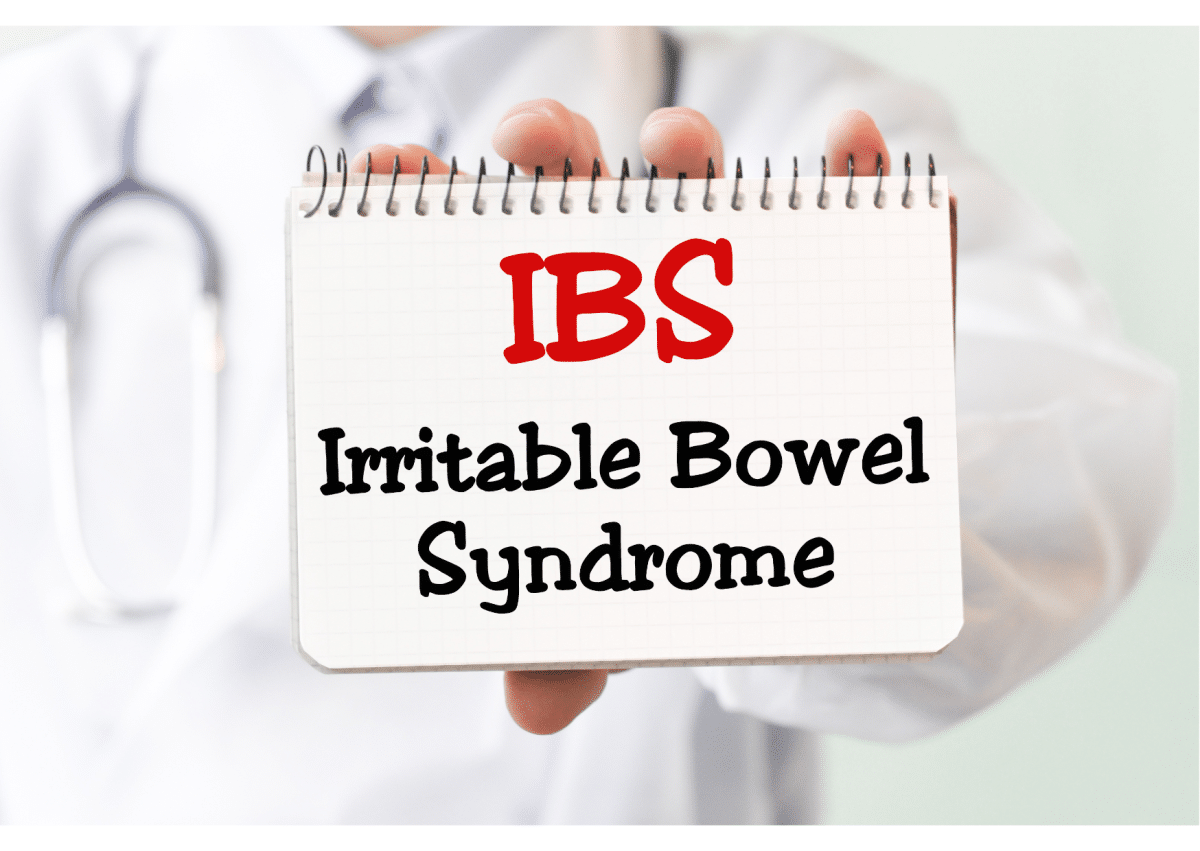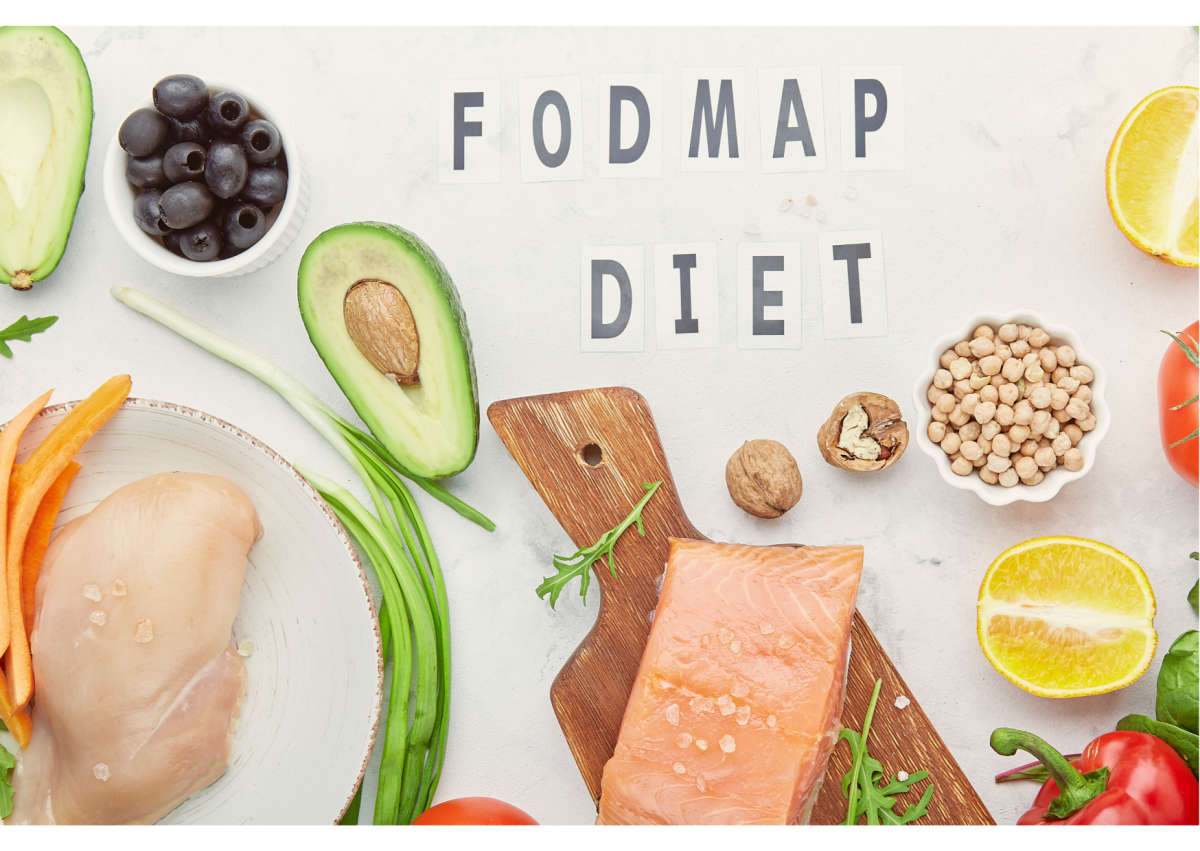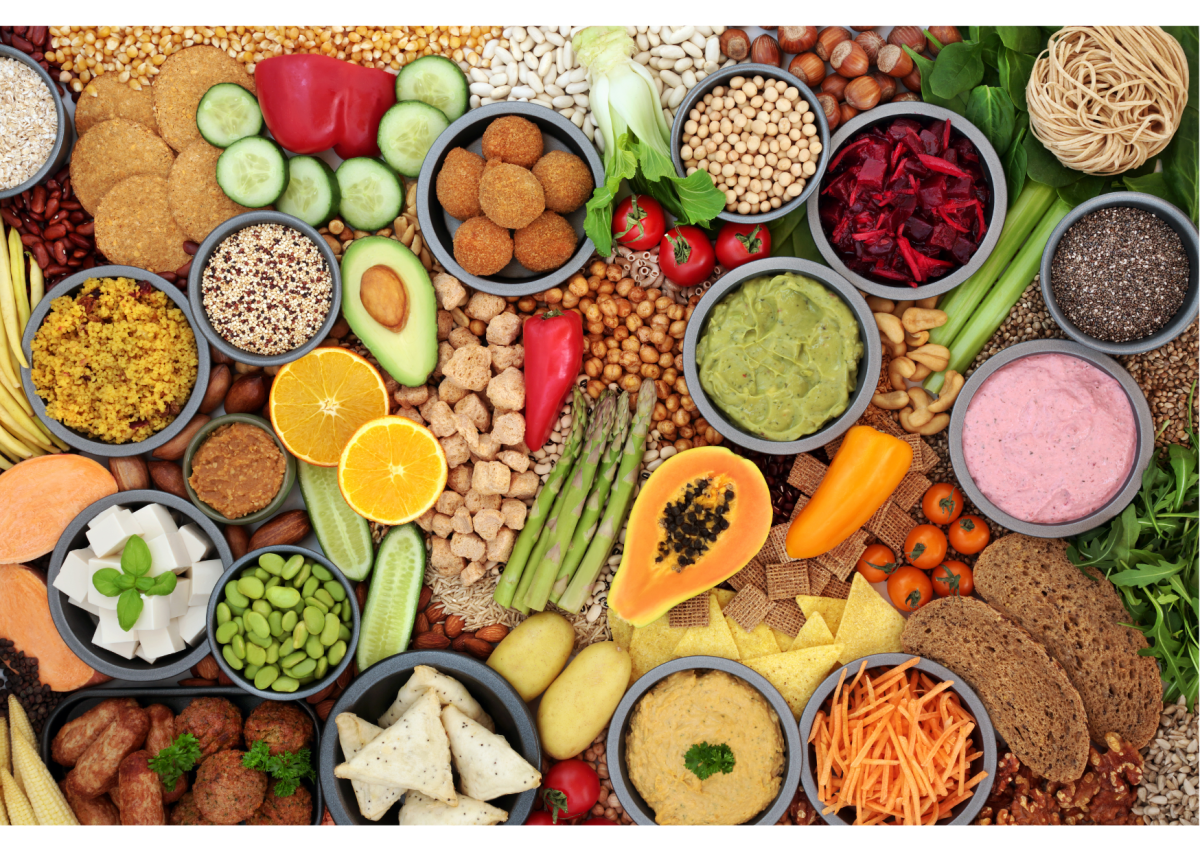IBS Diet Ultimate Guide
- Dietary Advice (non Low FODMAP)
The IBS diet is probably the first thing that comes to your mind when you get an IBS diagnosis. Therefore, we wrote an in-depth article to help you navigate your IBS journey.
We will discuss food-related IBS triggers and mechanisms behind them, diets for IBS, and probiotics and prebiotics.
Moreover, we touch on intermittent fasting and how it can affect IBS. Plus, we answer the question of whether a low-calorie diet worsens IBS.

Can a high fat diet trigger IBS?
Yes, a high fat diet can trigger IBS due to the gastro-colic reflex, which is exaggerated in people with IBS (1).
Impaired gastro-colic reflex shows as a strong urge to open bowels after a meal. This reflex is usually present with (1):
- Abdominal distension
- Flatulence
- Pain
- Tenesmus (rectal pain and the urge to open bowels, although they might be empty)
A high fat diet in IBS sufferers also slows intestinal gas transit, which causes bloating and abdominal pain (2).
Moreover, dietary fat is associated with colonic hypersensitivity in people with IBS, which, together with dysregulated gastro-colic reflex and intestinal gas retention, can worsen symptoms (3).
Read more about IBS symptoms here: What are the symptoms and causes of IBS?
The Intermittent Fasting Diet and IBS
Intermittent fasting is not recommended to improve IBS symptoms and may worsen your situation.
You can learn all about intermittent fasting and IBS in our article: Is intermittent fasting good for IBS?
The Gluten-free diet for IBS
Gluten is a protein found in cereals, such as barley and wheat, but it has nothing to do with IBS symptoms (4).
This may come as a surprise because gluten-containing foods often cause symptoms. However, gluten-containing foods are usually high in FODMAPs, a known trigger (5).
Gluten-containing cereals are rich in dietary fiber and various vitamins and minerals, so avoiding gluten can be detrimental to your IBS.
Read more about gluten and IBS in this article: Gluten and IBS: unraveling the connection.
The low FODMAP diet
The low FODMAP diet is a science-based, three-phase dietary approach to alleviating IBS symptoms and pinpointing dietary triggers (4).
The low FODMAP diet consists of:
- Restriction phase (restriction of FODMAPs)
- Reintroduction phase (reintroduction of FODMAPs)
- Modified diet (learning which combinations of FODMAPs you tolerate)
Working with a registered dietitian to properly implement and personalize the low FODMAP diet to ensure nutritional adequacy and long-term symptom management is essential.

The Dairy-free diet and IBS
Dairy products might trigger IBS symptoms in some people with IBS due to lactose, a naturally present sugar in dairy.
However, if you have a lactose intolerance, swapping regular dairy for lactose-free products will solve the problem without going entirely dairy-free.
Check our article on ‘Dairy and IBS – is there a link ?’ to learn more.
The elimination diet and IBS
The elimination diet is a term which could mean any diet that eliminates specific foods.
Typically, these foods are eliminated from your diet for a short period of time and then reintroduced systematically to identify which food is the culprit.
The science-backed elimination diet for IBS is the low FODMAP diet we discussed above (11).
There is no other elimination diet for IBS that has scientific backing.
The importance of dietary fiber for people with IBS
Dietary fiber is the indigestible part of plant foods and plays a crucial role in digestive health by promoting regular bowel movements, preventing constipation, and promoting satiety.
Fiber also helps regulate blood sugar levels, lower cholesterol levels, and support a healthy gut microbiome (6).
There are two main types of fiber: soluble and insoluble. Soluble fiber dissolves in water and forms a gel-like substance, while insoluble fiber does not dissolve and adds bulk to the stool.
However, fiber solubility does not predict whether our gut bacteria will ferment them, which is crucial in IBS. Fermentable fibers (high FODMAP) can trigger IBS symptoms.
The general recommendation for fiber intake is 30g daily (6), but this might differ for some people with IBS.
Here, you can get an idea of how to get 30g of fiber a day.
Although you have negative experience with high fiber foods and IBS flare-ups, they are crucial for gut health. Working with a registered dietitian can help you navigate in the right direction.
Supplements for IBS
You can include some supplements into your IBS diet to help improve symptoms.
These supplements have good scientific backing, and we routinely use them with patients in clinics.
Recommended Supplements for IBS
The following supplements can be helpful in the management of IBS and have scientifically backed results.
- Psyllium husk
- Soluble fiber supplements
- Probiotics
- Glutamine
- Peppermint oil capsules
- FODZYME
- Vitamin D
- Magnesium
Unrecommended supplements for IBS
There are several supplements on the market that claim to help your IBS symptoms, but please avoid these as they have little to no scientific backing.
(Please note that the list below is not exhaustive.)
A vegan diet and IBS
A vegan diet and IBS is a tricky combination as it is usually higher in fiber and potentially FODMAPs.
A vegan diet is not good or bad for IBS. This means you should not start this diet simply because you think it will benefit your IBS.
However, there is equally no research to suggest you should come off a vegan diet to help your IBS.
As a vegan diet excludes all animal-based products, careful planning is needed to ensure that it provides all essential nutrients (through fortified foods or supplements, if necessary).
To help you on your journey, we have collected 35 vegan low FODMAP recipes.

A Vegetarian diet and IBS
A vegetarian diet is slightly less restrictive than a vegan diet, as it allows you to include animal-based protein sources.
Again, a vegetarian diet is neither bad nor good for IBS.
In our articles, you can find more than 100 vegetarian low-FODMAP recipes. Check out 75 low-FODMAP vegetarian recipes and 35 low-FODMAP vegetarian recipes.
A ketogenic diet and IBS
A ketogenic (keto) diet is a high-fat and low-carbohydrate diet, and so far, no research has looked into the keto diet for IBS.
However, this diet is low in carbohydrates and potentially FODMAPs, so it can provide short-term symptom relief.
Unfortunately, this is not a resolution for your IBS as it can also have negative effects, such as:
- Keto diet constipation
- Nutritional deficiencies
- Elevated blood lipids (potentially higher risk for cardiovascular diseases)
Note that there are medical conditions (such as epilepsy) where a ketogenic diet can be beneficial.
Can a low-calorie diet worsen IBS?
Yes, a low-calorie diet can worsen IBS due to several reasons.
The first is disrupted gut motility, which can worsen constipation, cause abdominal pain, and cause bloating (7).
Another reason is due to increased stress because of hunger (8).
The third reason might be nutrient deficiencies due to low caloric intake if we do not adequately plan the diet.
If you struggle with losing weight, check our article: Losing weight and IBS.
Caffeine and IBS
Caffeine can trigger IBS symptoms in individuals with IBS (9, 10). Caffeine stimulates the gastrointestinal tract and increases gut motility (11, 12).
Increased contractions of muscles in the intestines and colon can result in an urge to open the bowels, which can worsen symptoms, especially in people with IBS-D.
Here, you can learn more about IBS-D: What is IBS-D and how can you manage it?
Caffeine is also a nervous system stimulant, which could potentially worsen IBS symptoms via the gut-brain axis, but currently, we have limited evidence (13).
Tolerance for caffeine differs from person to person, but you should not consume more than 400mg of caffeine daily, roughly six espresso coffees (14).
We have written an in-depth article about caffeine and IBS, which you can read here: Caffeine and IBS – what you need to know.
Alcohol and IBS
Research on women (a group with IBS and controls without IBS) suggests drinking alcohol is associated with the next day’s IBS symptoms in females, in those who have IBS, but not in healthy controls (15).
More information about alcohol and IBS you can find in our article: Can you drink alcohol on the low FODMAP diet?
Besides alcohol’s impact on IBS, it also has negative effects on our general health, including:
- Mental health problems (such as anxiety)
- Increased risk for certain cancers (such as colorectal cancer)
- Liver damage

Meal timings
One of the first bits of advice for IBS is to have regular meals that provide energy, essential nutrients, and dietary fiber (16).
The exact meal amount depends on your lifestyle, habits, and needs. We generally need three main meals and one to three snacks between them.
However, there is no known specific time that each meal should be at or what time gaps you should have between meals to benefit.
People with IBS-C may especially benefit from breakfast, as the first meal of the day can help stimulate the digestive system.
Another thing you should keep in mind is when to eat when exercising. The last meal should be three hours before training so your body has enough time to digest the food.
Approximately an hour before exercising, you can have a snack consisting of simple carbohydrates, such as a piece of white bread or a banana.
Summary
IBS is a complex condition in which nutrition plays a huge role. The low FODMAP diet is an elimination, 3-phase diet that alleviates IBS symptoms and pinpoints triggers.
IBS triggers are not just FODMAPs but also fat, caffeine, and alcohol. To improve IBS, have regular balanced meals to ensure your body has sufficient energy, fiber, and nutrients throughout the day.
You can try fiber supplements, such as psyllium husk, to increase fiber intake, which benefits all IBS subtypes. On the other hand, prebiotic supplements are not helpful for IBS.
Moreover, specific probiotic strains can help with your symptoms. If your symptoms do not improve in 12 weeks, discontinue taking them.
Whether you follow a vegan or vegetarian diet, plan your meals cautiously to avoid nutritional deficiencies. The recipes linked above provide some ideas.
Written by Barbara Lešnik, Student Dietitian, reviewed by Kirsten Jackson, Consultant Dietitian BSc Hons, RD, PG Cert